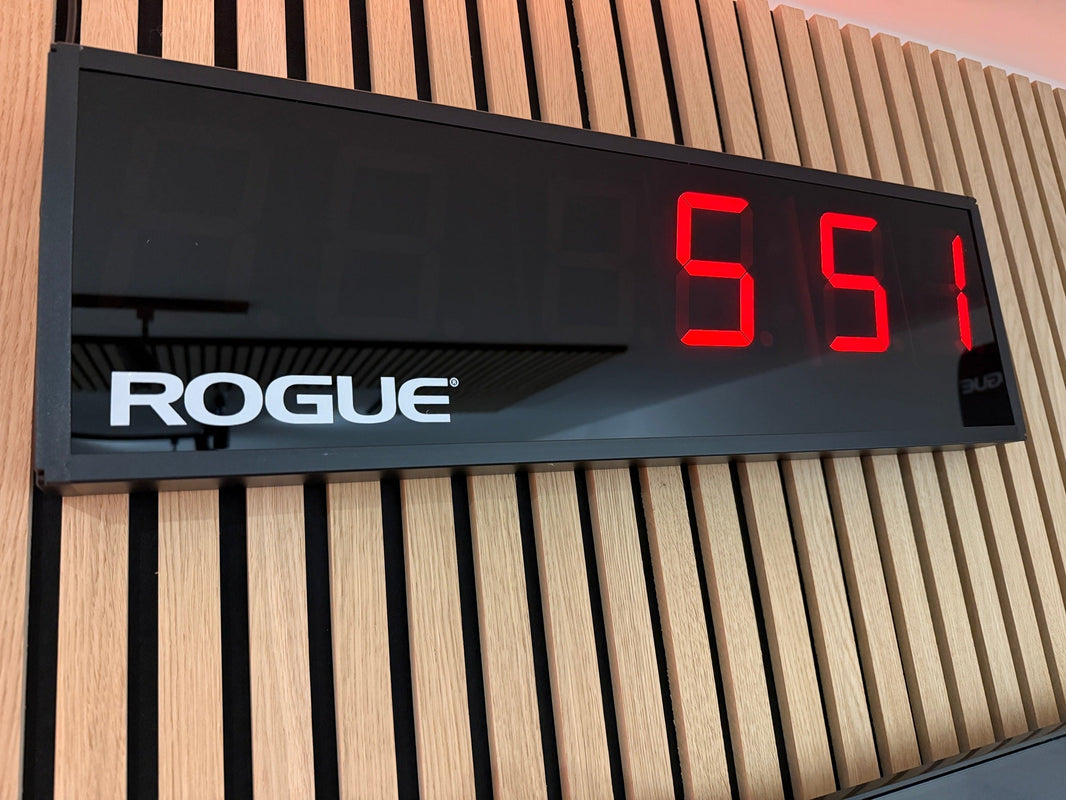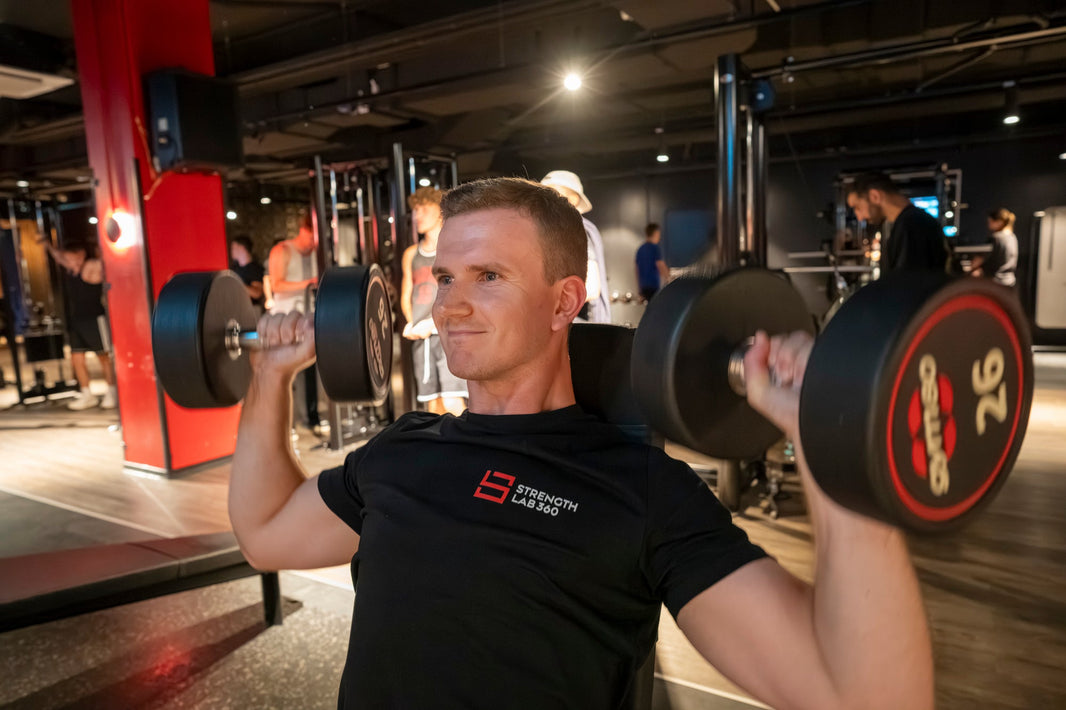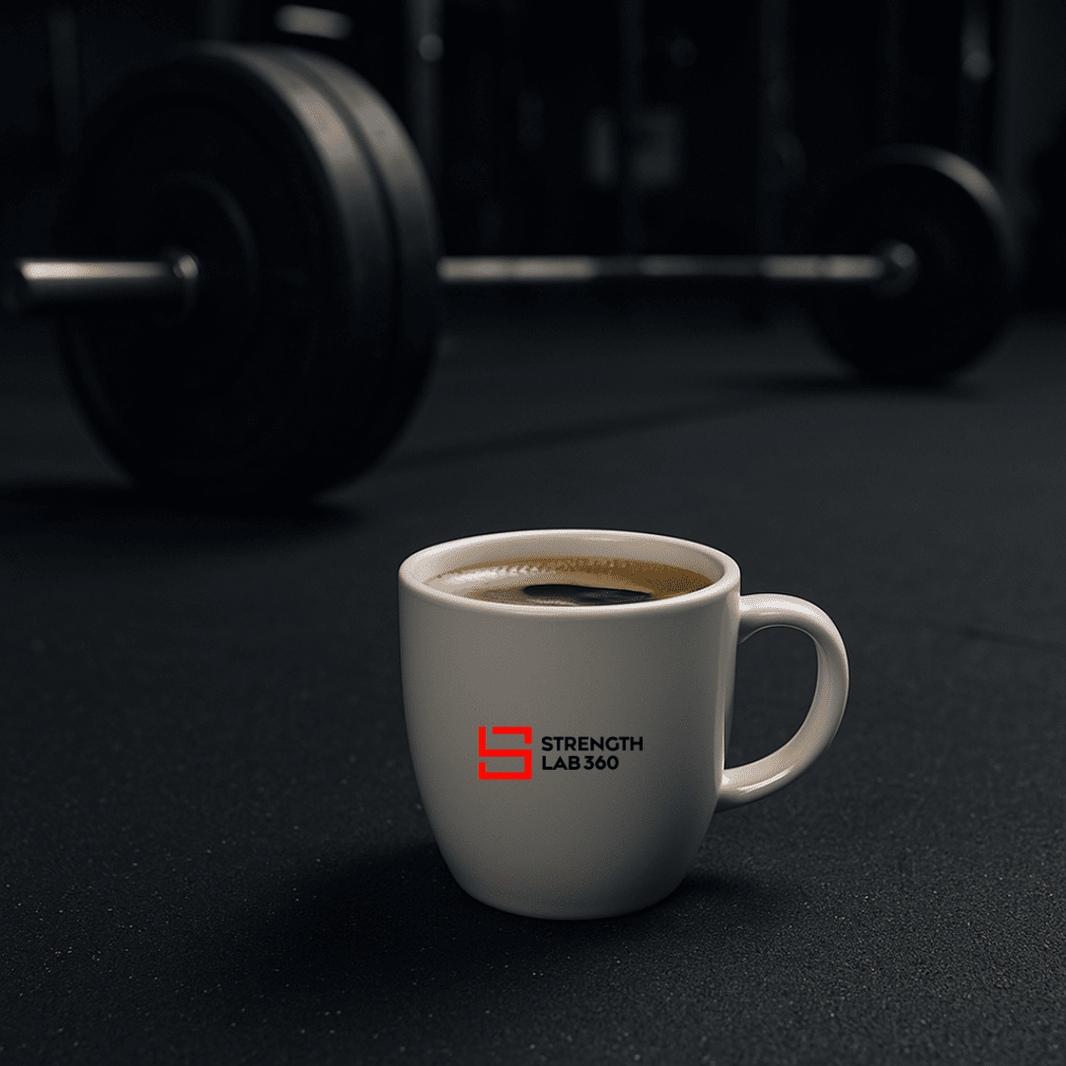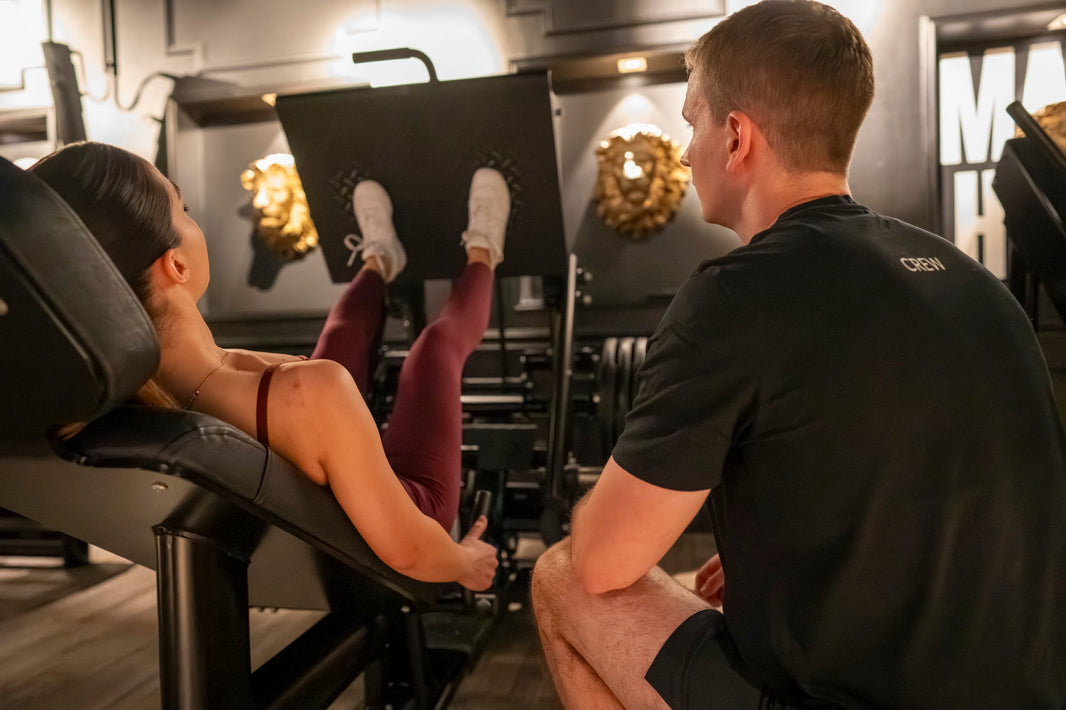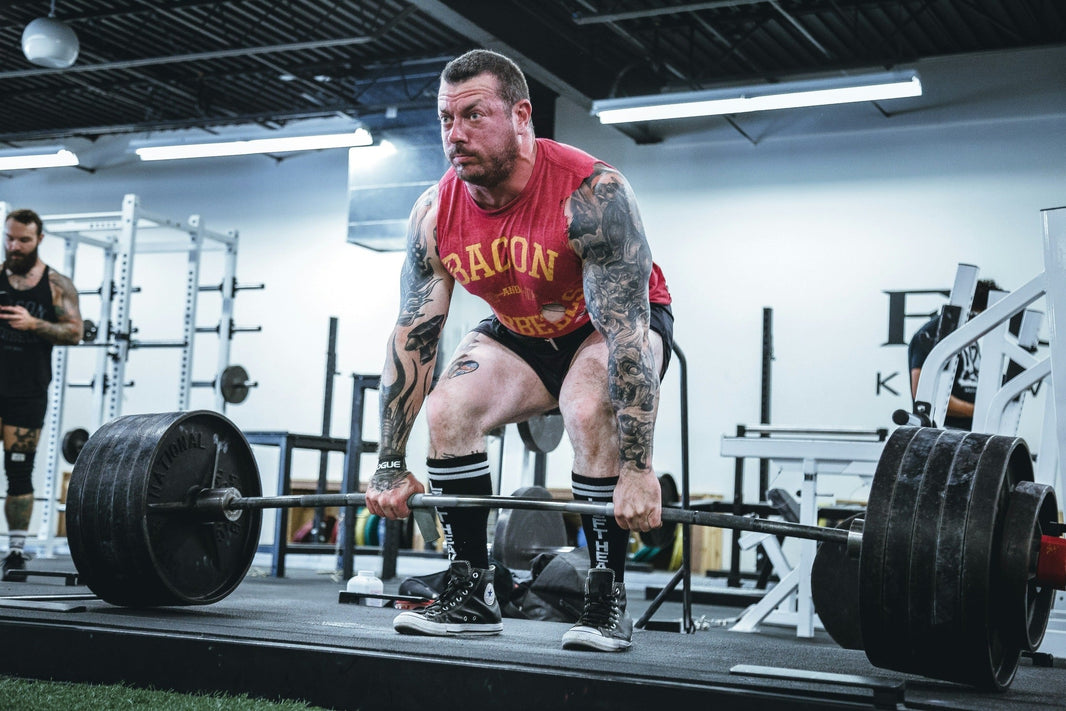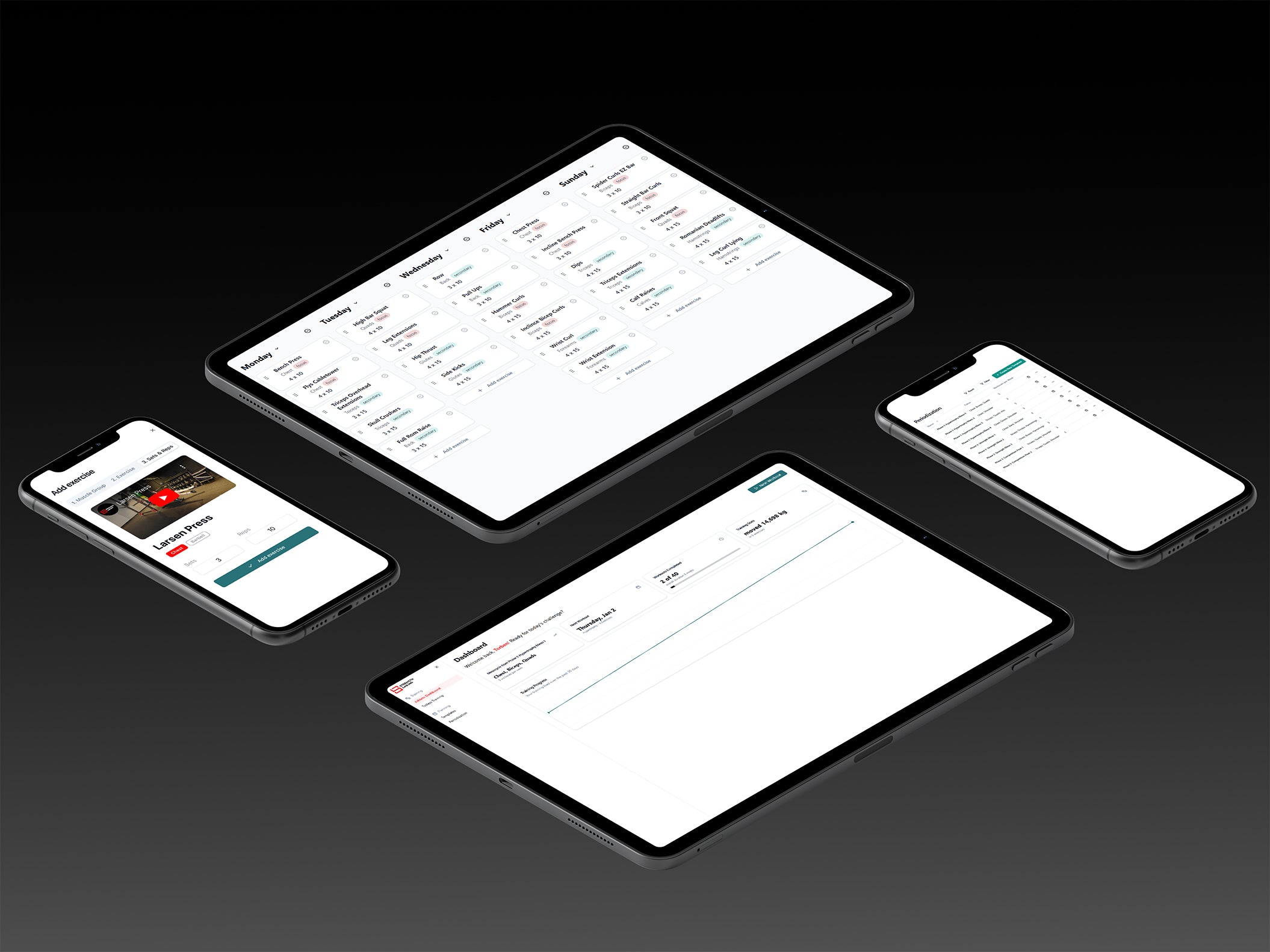Are you concerned that the festive season might derail your strength training progress? You're not alone. Many athletes worry about gaining weight and losing exercise momentum during holiday breaks. This article will guide you through 10 practical strategies to maintain your health and fitness without succumbing to injuries or setbacks. From setting achievable goals to incorporating full-body workouts and prioritizing nutrition, you'll discover how to navigate the holiday period effectively. Dive into these evidence-based tips and keep your strength training on track, ensuring you start the new year as strong as ever.
Key Takeaways
- Consistent training during holidays maintains muscle mass and bone density
- Short, focused sessions can effectively sustain strength and cardiovascular health
- Bodyweight and resistance band exercises offer versatile, equipment-free workouts
- Balancing indulgence with nutrient-rich foods supports training and well-being
- Deloading periods allow for recovery while preserving fitness levels
10 Evidence-Based Tips for Your Holiday Season Strength Training
Maintaining your physical fitness during the holiday season can be a challenge, but it's crucial for your strength training progress. To keep your squat strength up, find creative ways to incorporate bodyweight exercises like air squats or pistol squats into your routine. These movements can be done anywhere and help preserve muscle activation and endurance.
Don't let travel disrupt your training. Seek out local gyms where you can continue your barbell workouts, or use the StrengthLab360 App to adapt your regimen to available equipment. This ensures you stay on track with your strength and hypertrophy goals, even when away from your home gym.
Incorporate aerobic exercise into your holiday activities for balanced fitness. Engaging in brisk walks or jogs can boost your cardiovascular health and aid recovery, complementing your strength training efforts. This approach helps maintain endurance and can be a refreshing change of pace during the festive season.
Finally, focus on consistency over intensity. Short, regular training sessions can be more effective than sporadic, heavy workouts. Utilize the StrengthLab360 App to keep your training structured and efficient, ensuring you make the most of your time without compromising your holiday enjoyment.
1. Why Holiday Workouts Are Important for Staying Fit
During the festive season, your commitment to fitness shouldn't wane; exercise physiology teaches us that consistency is key to maintaining muscle strength and cardiovascular health. Engaging in regular workouts, even with just a kettlebell or dumbbell, can prevent the regression of your hard-earned gains. As a personal trainer would advise, the holiday period is not a time to pause but to adapt and sustain your fitness journey.
Staying active with holiday workouts is vital for managing stress and counteracting the calorie-rich festive meals. Your physiology thrives on the balance provided by exercise, which supports metabolic health and overall well-being. By incorporating even brief sessions of strength training, you ensure that your body remains primed and your energy levels stay balanced.
Utilizing portable equipment like kettlebells or dumbbells can make holiday workouts both feasible and effective. These tools are versatile and can be incorporated into a variety of exercises that maintain muscle activation and support your physiology, ensuring you don't miss a beat in your strength training regimen.
Remember, the holiday season is a marathon, not a sprint. Short, focused training sessions can be just as beneficial as your regular routine, especially when guided by the principles of exercise physiology. By staying dedicated to your fitness goals, you'll enter the new year with momentum rather than playing catch-up.
2. Set Realistic Goals to Maintain Muscle and Strength
Setting realistic goals over the holidays is essential for maintaining muscle mass and bone density, crucial for your overall health. The Mayo Clinic suggests that adults engage in strength training exercises at least twice a week to combat muscle loss and prevent osteoporosis, particularly in the hip and spine areas. Tailor your holiday fitness objectives to these guidelines to ensure you're supporting your body's needs.
While you might aim for weight loss or muscle gain throughout the year, consider shifting your focus to maintenance during the holiday season. This approach allows you to enjoy festive celebrations without the pressure of stringent fitness targets, yet still supports your long-term strength and cardiovascular health.
Remember, the risk of cardiovascular disease doesn't take a holiday, so maintaining a routine that includes both strength and aerobic exercises is key. You can preserve your heart health and manage holiday stress by ensuring each workout includes components that boost your cardiovascular system.
Lastly, be mindful of your body's signals and adjust your training intensity accordingly. Over the holidays, it's wise to prioritize recovery and listen to your body to prevent injury. This way, you'll return to your regular training schedule in the new year feeling refreshed and ready to tackle new challenges.
3. Create a quick Simple Training Plan Focused on Full-Body Workouts
When time is scarce during the holidays, a full-body workout plan is your ally in maintaining muscle mass and overall strength. Focus on compound movements that engage multiple muscle groups, ensuring you stimulate your legs, core, and upper body efficiently. This strategy not only saves time but also keeps your muscles, including those around the knee, active and strong.
Prevent the onset of pain and stiffness by incorporating dynamic exercises that target both stability and mobility. Movements such as lunges and planks can fortify your legs and core, reducing the risk of knee discomfort and enhancing your functional fitness. These exercises are pivotal in preserving muscle integrity and joint health during the bustling holiday season.
Design your sessions to alternate between pushing and pulling movements to balance the workload across your musculature. This approach ensures that no muscle group is overworked, which can lead to pain, and that your mass and strength gains are sustained. Remember, consistency in your leg and upper body exercises is key to avoiding setbacks.
Lastly, keep your workouts concise yet effective by setting a clear structure that includes a warm-up, main set, and cool-down. This will help you manage time without neglecting any aspect of your training, ensuring your muscle mass and knee health are supported. With a well-rounded plan, you can enjoy the holiday festivities without compromising your fitness.
When you're at home during the holidays, bodyweight exercises can be a powerful tool to maintain skeletal muscle health and promote muscle hypertrophy. Simple movements like push-ups, squats, and lunges engage multiple muscle groups, enhancing your strength and quality of life without the need for heavy equipment.
4. Keep Your Body Moving with Quick Training Sessions
Quick training sessions are your secret weapon against holiday fatigue and diet disruptions. By focusing on short bursts of exercises like the bench press or bicep curl, you can maintain muscle stimulation without the need for lengthy workouts. This strategy helps you stay on top of your nutrition and fitness goals, even when time is tight.
During these sessions, pay close attention to your form to maximize the benefits of each movement. Whether you’re performing a bench press or a bicep curl, proper technique ensures you’re engaging the right muscles and reducing the risk of injury. This focus allows for efficient workouts that fit seamlessly into your holiday schedule.
Remember, consistency in your training combats the potential for holiday weight gain and muscle loss. Integrating quick sessions into your routine helps you manage your diet and maintain your strength, ensuring you don’t fall behind on your fitness journey. Even a few minutes dedicated to exercises like the bench press can make a significant difference.
Lastly, listen to your body and adjust your training intensity to match your energy levels. If you’re experiencing fatigue, scale back the intensity but maintain the frequency of your workouts. This balance is crucial for sustaining your strength and nutrition goals while enjoying the festive season.
5. Prioritize Proper Hydration and Protein Intake
Hydration is paramount for managing adipose tissue and supporting metabolic processes during the holiday season. Ensure you drink ample water to facilitate the breakdown of calories and maintain muscle function, crucial for exercises targeting your biceps and shoulder muscles.
Protein intake is essential in preventing muscle loss and combating osteoporosis, especially when indulging in holiday feasts. Aim to include a source of high-quality protein in every meal to support muscle repair and growth, vital for your strength training regimen.
Balance your calorie consumption with nutrient-dense foods that fuel your workouts and aid in muscle recovery. Prioritize lean proteins to fortify your biceps and shoulder muscles, ensuring your strength training doesn’t miss a beat during the festive period.
Remember, your body’s need for hydration and protein doesn’t take a holiday. By staying diligent with your intake, you’ll maintain muscle integrity and support bone health, keeping osteoporosis at bay and ensuring your strength training efforts yield results.
6. How to Stay Motivated When You Don’t Feel Like Training
Staying motivated for training during the holidays can be tough when the festive mood takes over. To keep your metabolism firing and your fitness goals in sight, start with warming up exercises that are less intense. This can include dynamic stretches that activate your arm and leg muscles, preparing your body for the workout ahead without feeling overwhelmed by heavy lifting immediately.
Keep in mind that every bit of movement counts. If you’re struggling to start a full session, focus on smaller, more manageable exercises for your foot and arm muscles. Even a brief walk or some light arm weights can contribute to your overall fitness and keep your metabolism active during the holiday lull.
Consider the benefits of maintaining a routine: a consistent approach to training aids in managing holiday indulgences and keeps your metabolism steady. Here’s a simple breakdown of how different exercises impact your body during the holidays:
|
Exercise |
Benefits |
|
Arm Curls |
Boosts arm strength and muscle tone |
|
Leg Squats |
Supports leg muscles and enhances metabolism |
|
Walking |
Improves cardiovascular health and aids digestion |
|
Dynamic Stretching |
Prepares muscles for workout and reduces injury risk |
Lastly, remember the feeling of accomplishment that comes after a workout. Visualize how energized you’ll feel post-training, with your metabolism boosted and your body warmed up. This mental image can be a powerful motivator to get you moving, even when the temptation to skip your workout is strong.
7. Moderation Is Key: Enjoy the Food Without Overindulgence
During the holidays, it’s tempting to indulge, but moderation is crucial, especially if you’re aiming to maintain your deadlift strength. Overeating can lead to sluggishness, impacting your blood flow and energy levels, which are essential for progressive overload in your training. Enjoy festive meals, but focus on portion control to keep your strength training progress on track.
Remember, excessive food intake can strain your wrist and joint health, as carrying extra weight may lead to discomfort during exercises like deadlifts. To prevent this, choose your meals wisely, balancing indulgence with nutrient-rich foods that support your training regimen and overall well-being.
Keep in mind that maintaining a balanced diet aids in regulating blood sugar levels, which is vital for sustained energy during workouts. This balance is key to achieving progressive overload without compromising your health or fitness goals. Savor the holiday flavors, but do so with a mindful approach to portion sizes and nutritional value.
Lastly, while enjoying the holiday season, don’t lose sight of your long-term objectives. A joint-friendly diet, rich in anti-inflammatory foods, can help you stay limber and ready for your next strength session. By practicing moderation, you ensure that your festive celebrations enhance rather than hinder your strength training journey.
8. The Science Behind Deloading During the Festive Period
Deloading during the festive period is a strategic approach to prevent obesity and maintain flexibility. By reducing the intensity and volume of your workouts, you give your body a chance to recover while still engaging in physical activity. This practice is essential for sustaining your range of motion and preventing injury.
Incorporating plyometrics and isometric exercise into your deload week can maintain neuromuscular coordination and strength. Plyometric exercises help preserve explosive power, while isometric holds build stability and control, both contributing to a well-rounded fitness regimen.
Adjusting your training to include lighter activities can enhance flexibility and protect against the stiffness often associated with heavy lifting. Here’s how you can integrate deloading into your holiday routine:
- Reduce weight loads to focus on form and range of motion.
- Incorporate stretching and flexibility exercises post-workout.
- Include low-impact plyometrics to maintain explosive strength.
- Practice isometric exercises to sustain muscle engagement.
Remember, deloading is not a pause from training but a recalibration. It allows you to maintain your fitness levels while giving your body the necessary respite to avoid burnout and overtraining. This period is crucial for long-term strength and mobility, ensuring you return to your regular routine with renewed vigor.
9. Why a Quick Walk or HIIT Session Can Make a Huge Difference
Integrating a quick walk into your holiday routine can significantly enhance fat metabolism, crucial for bodybuilding enthusiasts aiming to maintain lean muscle mass. This simple aerobic activity stimulates your cardiovascular system, reducing disease risk and promoting overall health.
High-Intensity Interval Training (HIIT) sessions, even when brief, can ignite your anaerobic exercise pathways, leading to improved muscle endurance and strength. These workouts are particularly effective for those with limited time, offering a condensed yet powerful training option.
Utilizing a resistance band for quick workouts adds an element of strength training, complementing your bodybuilding regimen. The versatility of resistance bands allows for a range of exercises that target different muscle groups, maximizing your training efficiency.
Remember, consistency in incorporating these activities can prevent the accumulation of excess fat and support your resistance training goals. By dedicating time to quick walks or HIIT, you’re taking proactive steps to sustain your fitness level during the holiday period.
Key Takeaways: 10 Tips to Stay Fit During the Holidays
Integrating bodyweight exercises into your holiday routine can maintain muscle mass and bone density, ensuring you stay strong and resilient. Simple movements like push-ups and air squats can be done anywhere, keeping your body in motion and your fitness goals within reach.
Even when a leg press machine isn’t available, you can still target similar muscles through lunges and step-ups. These exercises help preserve leg strength and contribute to your overall well-being, reducing stress and enhancing your body’s range of motion.
Remember, consistent engagement in physical activity during the holidays helps manage stress and supports your mental health. By staying active, you’re not only nurturing your physique but also fostering a sense of balance and calm during a bustling time of year.
Lastly, don’t underestimate the impact of maintaining bone density through strength training. Regular exercise, even with lighter loads or body resistance, is key to preventing bone loss and ensuring your structural health remains a priority amidst the festivities.
Frequently Asked Questions
How can I maintain my strength training routine during the holidays?
To maintain your strength training routine during the holidays, prioritize your workouts, adapt exercises to fit your schedule, and stay consistent with the StrengthLab360 App for guided, efficient sessions.
What are realistic fitness goals for the holiday season?
Realistic fitness goals for the holiday season include maintaining workout consistency, managing caloric intake, and setting achievable strength milestones.
Can bodyweight exercises effectively maintain muscle mass?
Bodyweight exercises can effectively maintain muscle mass, especially when incorporating progressive overload and high-intensity routines.
Why is hydration and protein crucial for holiday fitness?
Hydration maintains cellular function and energy levels, while protein is essential for muscle repair and growth, both pivotal for sustaining holiday fitness routines.
What are the benefits of deloading over the festive period?
Deloading during the festive season can enhance recovery, prevent burnout, and set the stage for stronger performance in the new year.
Conclusion
Staying fit during the holiday period is essential to maintaining muscle mass, bone density, and overall health, ensuring you enter the new year with strength and vitality. Incorporating bodyweight exercises, quick training sessions, and proper nutrition into your routine can help you manage stress and counteract holiday indulgences. By setting realistic goals and staying motivated, you can enjoy the festive season without compromising your fitness journey. Remember, consistent physical activity and moderation in dietary choices are key to preserving your training progress and supporting your well-being during this busy time.
References
- Enhanced protein intake on maintaining muscle mass, strength, and physical function in adults with overweight/obesity: A systematic review and meta-analysis
- Effects of a whole-body strength training on metabolic responses and body composition

